News
There’s a rude awakening in store for the DOGE bros
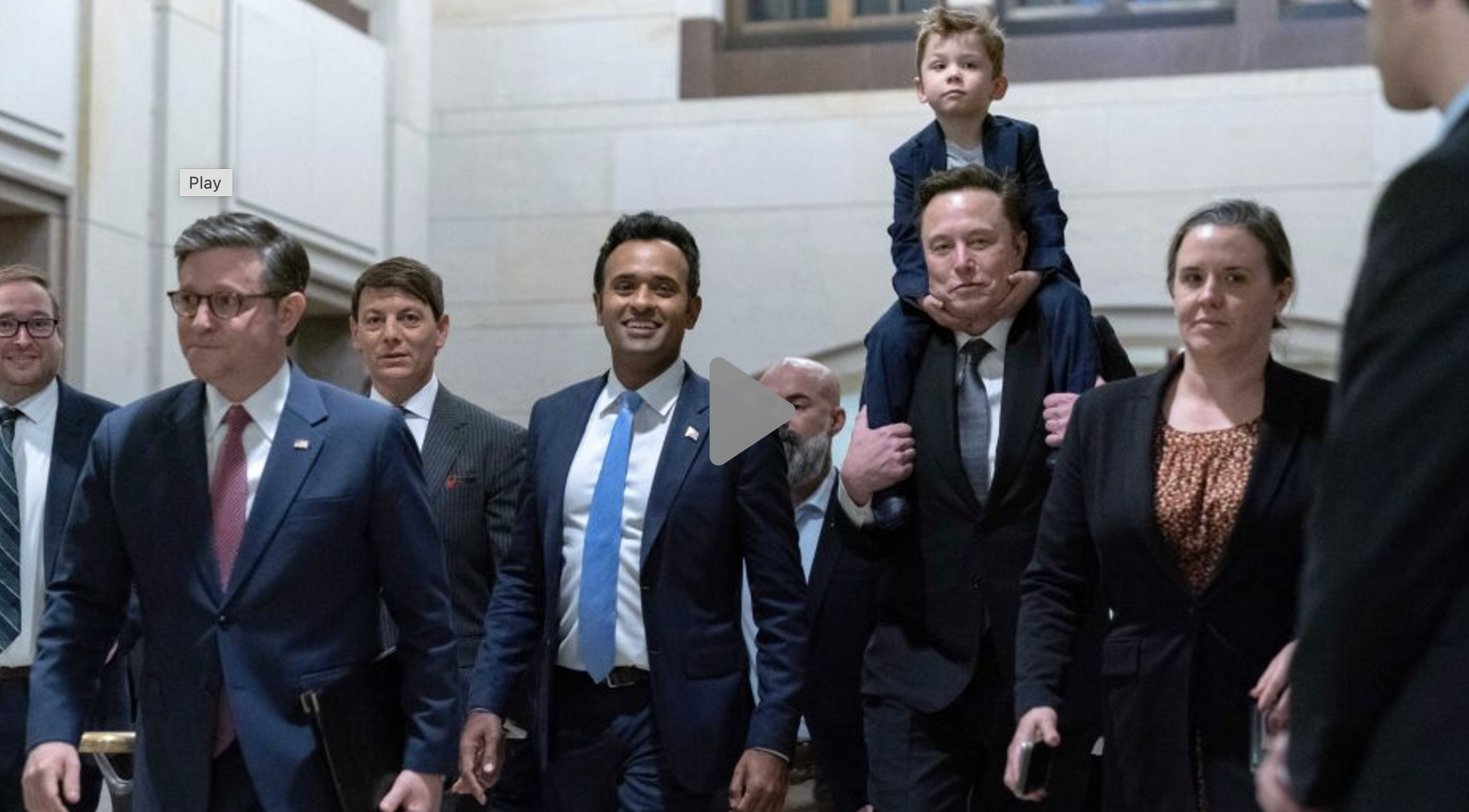
Once upon a time, a brash outsider entered the Oval Office with a promise to “drain the swamp.” He brought in a posse of businesspeople, led by a leading industrialist, to work like “tireless bloodhounds” to root out inefficiencies in Washington’s vast bureaucracy.
It was 1982, and President Ronald Reagan’s Grace Commission began its quest to get rid of hundreds of billions of dollars in wasteful spending.
Much like President-elect Donald Trump’s “Department of Government Efficiency,” the advisory board led by entrepreneurs Elon Musk and Vivek Ramaswamy, the Grace Commission had no authority to implement changes, only to advise.
And after a couple of years of work, the Grace Commission’s 150-plus members persuaded Congress to enact exactly zero of its recommendations.
“You can’t find any evidence that they changed the growth of the government one iota,” Douglas Holtz-Eakin, president of the center-right think tank the American Action Forum, told CNN. “There are lots of little examples of successes” by the group, he said. “But I think you should ask Elon and Vivek what makes them different than the Grace Commission. How are they different than other things that were unsuccessful?”
In 2024, as in 1982, there’s a broad consensus that the federal budget is bloated and could benefit from a fresh set of eyes to make the government run more efficiently and save taxpayers’ money. Economists on the left and the right told CNN they’d welcome any good-faith effort to reduce the deficit and tackle government spending. But so far, neither Musk nor Ramaswamy seem to grasp the complexities of the $6.8 trillion US budget.
“We keep pretending the federal budget is like sitting at the kitchen table, figuring out the family’s finances,” said Holtz-Eakin, a former adviser to John McCain’s 2008 campaign and budget chief under President George W. Bush. “That’s a lie… It’s a fifth of the economy, and it’s very, very difficult to manage and to restructure. And they’re finding that out.”
The math problem
Musk and Ramaswamy will face an immediate math challenge with finding a way to severely slash spending — especially if they commit to the $2 trillion figure Musk has tossed around.
Roughly 60% of the federal government’s budget comprises what’s known as mandatory spending — primarily Medicare, Medicaid and Social Security. It would be political suicide to dramatically cut funding for those safety-net programs, which is why there is no appetite in Congress to do so. Trump has promised to protect Social Security.
Another 10% of the budget is spent on paying interest on Uncle Sam’s mountain of debt. That can’t be touched either, at least not without setting off a cataclysmic debt default and market meltdown.
That leaves around 30% of the budget that’s discretionary — but roughly half of that goes to defense spending, another area that would be challenging to dramatically cut.
“Removing $2T in annual spending will be exceedingly difficult without touching mandatory spending, which would require lawmakers to make the tough choices they have been either unwilling or unable to make,” Isaac Boltansky, director of policy research at BTIG, wrote in a recent report to clients.
Non-defense discretionary spending has already been dialed back, standing at the lowest level in modern history as a percentage of GDP, according to Moody’s Analytics chief economist Mark Zandi.
That’s why Zandi said he’s skeptical that focusing on government efficiency could generate even $200 billion a year in annual savings, let alone $2 trillion. (Musk said in October that he could cut at least $2 trillion, but he didn’t specify if he meant annually or over a period of time).
“I’m all for efforts to improve the efficiency of government,” Zandi said. “But there’s no game-changing 60-yard touchdown pass here. It will be a lot of one- or two-yard runs.”
A two-pronged approach
In a Wall Street Journal op-ed last month, Musk and Ramaswamy offered a broad sketch of their vision to target “the $500 billion plus in annual federal expenditures that are unauthorized by Congress or being used in ways that Congress never intended.”
But how, exactly?
There’s a way, though it’s not always legal, for the president to defy Congress and just refuse to spend money lawmakers have allocated. It’s called impoundment.
“My threat level for DOGE’s recommendations making it through Congress is relatively low,” said Bobby Kogan, the senior director for federal budget policy at the Center for American Progress, a left-leaning policy research group. “My threat level for them doing some things illegally, unilaterally, is incredibly high.”
Trump has repeatedly said he would challenge the Nixon-era law that curtailed the president’s ability to block funding for projects approved by Congress. The DOGE bros are also on board, writing in their op-ed that they believe the Supreme Court would likely side with Trump.
A spokesperson for the Trump transition team didn’t respond to a request for comment.
It’s not clear how an impoundment strategy would play out. Newt Gingrich, the former House speaker and adviser to Trump, told the Washington Post last month that the administration would likely try a two-pronged strategy: asking Congress to approve drastic spending cuts, while testing the limits of its power to rescind funds unilaterally.
For example, if the White House wanted to freeze federal funds to schools with vaccine mandates, as the president-elect has suggested, the move would be challenged in court by the school or local government. It would be up to the courts to uphold or overturn that order, potentially holding up vital funds for months or even years.
“I do think that they’re probably going to lose (some cases) in the courts, but that is a very real path to chaos,” Kogan said.
News
Trump Nominates Conservative Lawyer Harmeet Dhillon To Lead DOJ Civil Rights Division
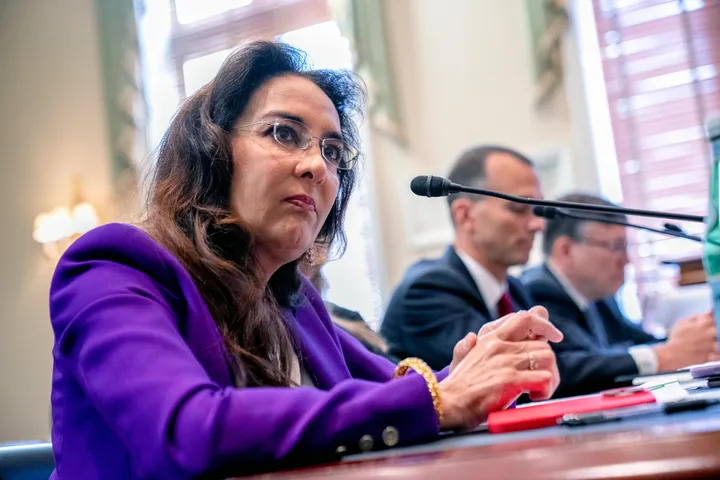
Harmeet Dhillon was chosen by the president-elect to replace Kristen Clarke on the Justice Department’s civil rights efforts.
President-elect Donald Trump announced on Monday that he plans to nominate a conservative California attorney to lead a critical division of the Department of Justice.
Harmeet Dhillon, a former vice chairwoman of the California GOP and a national committeewoman for the Republican National Committee, was selected by Trump to serve as assistant attorney general for civil rights at the Justice Department. She would replace Kristen Clarke, who became the first woman and first Black woman to run the division in 2021.
Trump, who described Dhillon as one of the “top Election lawyers” in the country in his Truth Social announcement, said that she would have a large role in voting rights enforcement.
“Throughout her career, Harmeet has stood up consistently to protect our cherished Civil Liberties, including taking on Big Tech for censoring our Free Speech, representing Christians who were prevented from praying together during COVID, and suing corporations who use woke policies to discriminate against their workers,” he wrote.
Dhillon combated stay-at-home orders during the COVID-19 pandemic. She filed several lawsuits against government-level regulations, arguing there was overreach. The lawsuits Dhillon filed came after Democratic California Gov. Gavin Newsom became the first governor to issue statewide stay-at-home orders to shut down nonessential activities and interests to combat the spread of the coronavirus.
In 2018, Dhillon founded the conservative nonprofit The Center for American Liberty, which has filed lawsuits challenging vaccine requirements and trans-inclusive school policies. Most notably, Dhillon currently represents Chloe Cole, a young activist who sued Kaiser Permanente in California after she detransitioned from male to female. Cole has rallied alongside Republican politicians and conservative media figures, and has testified in support of dozens of state laws restricting access to gender-affirming care for trans youth.
Dhillon is highly critical of blue states that aim to uphold and protect rights for transgender people in light of ongoing legislative attacks. She said Maine’s “shield” law, which protects reproductive health care providers and trans people, is “unconstitutional” and expressed concerns about future protections in California.
A staunch opponent of abortion herself, the attorney also unsuccessfully represented anti-abortion activist David Daleiden, who in 2016 used a fake driver’s license to pose as a biomedical company executive and tried to buy fetal tissue from Planned Parenthood, in an effort to accuse the health care provider of selling tissue for profit.
Dhillon, who was born in India and is a practicing Sikh, has faced pushback from fellow Republicans due to questions of her faith. After she announced in 2022 that she would challenge RNC Chair Ronna McDaniel for her position, several members of the RNC circulated a video of Dhillon opening a 2016 Republican National Convention with a Sikh prayer. In a letter to Alabama Republicans in 2023 responding to the incident, Dhillon addressed concerns about her faith and slammed McDaniel’s leadership. Alabama Republican Chris Horn questioned how Dhillon’s religion would impact policy to NBC. McDaniel condemned attacks on religion but told Politico her allies questioned how Dhillon’s faith would impact the party.
Last year, former Fox News host and conservative political commentator Tucker Carlson hired Dhillon to represent him in a gender discrimination lawsuit by his former producer, Abby Grossberg. The ensuing settlement resulted in Fox paying Grossberg $12 million.
“I’m extremely honored by President Trump’s nomination to assist with our nation’s civil rights agenda,” Dhillon said in a post on X (formerly known as Twitter). “It has been my dream to be able to serve our great country, and I am so excited to be part of an incredible team of lawyers led by @PamBondi. I cannot wait to get to work!”
News
Trump’s Utterly Absurd Take On Birthright Citizenship Involves Walking Infants
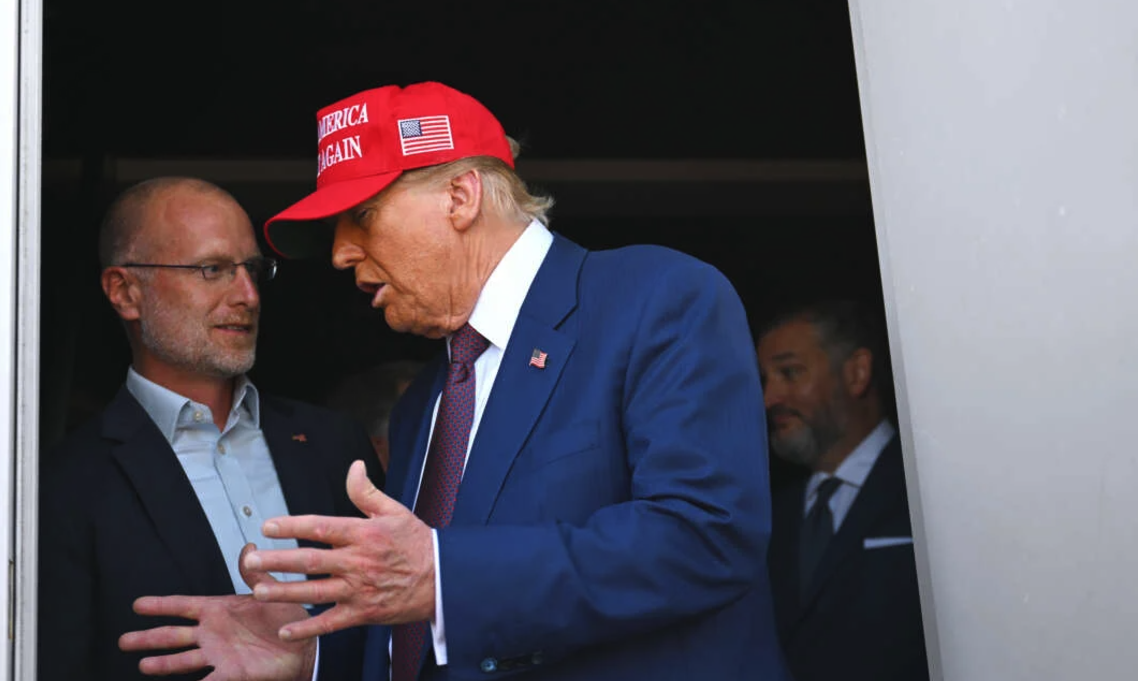
The president-elect appeared very confused about how American citizenship is conferred.
In a freewheeling interview with NBC News Sunday, President-elect Donald Trump offered a head-scratching explanation for his plan to wage an attack on birthright citizenship.
“Did you know, if somebody sets a foot — just a foot, one foot, you don’t need two — on our land, congratulations, you are now a citizen of the United States of America,” Trump said, when discussing birthright citizenship.
“Yes, we’re going to end that, because it’s ridiculous,” he added.
Trump appeared to describe a hypothetical scenario in which a woman would give birth to an infant who — either capable of walking at birth or helped along by someone eager to win a bet — would set one foot on American soil and the other in either Mexico or Canada.
It is also possible Trump was imagining an infant hopping or standing on one leg. Neither scenario is plausible.
Trump also repeatedly asked whether the interviewer, Kristen Welker of “Meet the Press,” knew that the United States was the only country that conferred citizenship by birthright.
“We’re the only country that has it, you know,” Trump said. “You know we’re the only country that has it.”
Birthright citizenship is commonly recognized in the Americas, including in Canada and Mexico. Also known by its Latin legal term as “jus soli,” it is the concept of conferring citizenship by birth in a given country. Most countries instead recognize “jus sanguinis,” which instead confers citizenship based on the nationality of a person’s parents.
Welker did not challenge Trump’s utterly wrong description of how birthright citizenship works or that the United States is not alone in recognizing it. But she asked whether Trump intended to enact his proposed change through executive action.
“Well, if we can, through executive action,” Trump said. “I was going to do it through executive action, but then we had to fix COVID first, to be honest with you.”
Birthright citizenship is protected by the 14th Amendment to the Constitution. The president cannot use executive action to overturn a constitutional amendment, though legal experts expect the Trump administration to challenge the long-settled legal interpretation through the courts.
Trump has spent significant time in southern Florida, which is home to a large Cuban-American community.
He likely came up with this weird description of birthright citizenship by free-associating the issue with the now-defunct policy of allowing Cuban migrants to stay within the United States and pursue citizenship upon touching American soil. The policy was known as “wet-foot, dry-foot.”
During this year’s presidential campaign, Trump repeatedly described immigrants as coming from jails and mental institutions. He was likely resurrecting assertions he heard during the era of the Mariel boatlift four decades ago.
News
Trump Trolls Canadian Prime Minister Justin Trudeau, Stirs Controversy
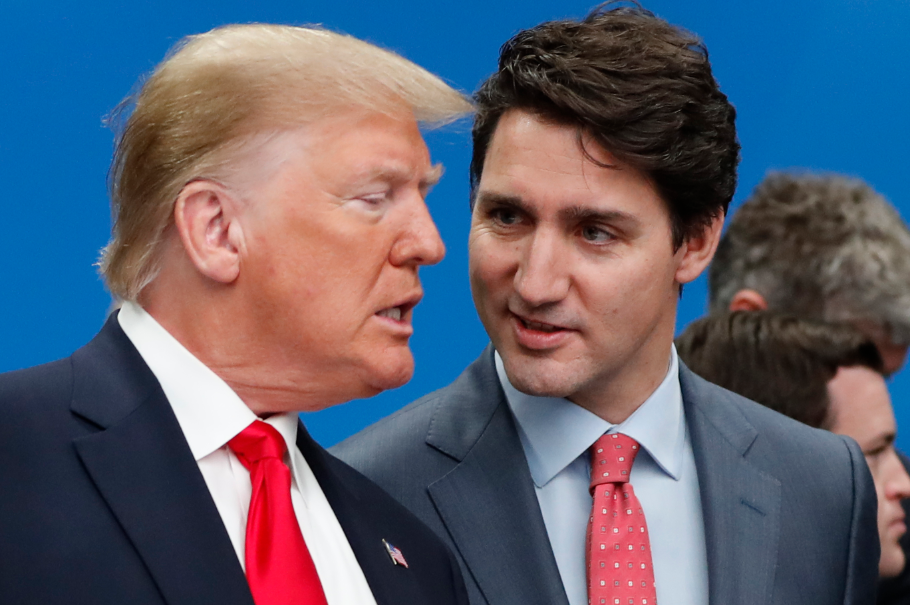
Trump mocks the United States’ northern ally
In a post just after midnight on Truth Social, Trump took aim at Canadian Prime Minister Justin Trudeau with a mocking reference, calling him “Governor Justin Trudeau of the Great State of Canada.”
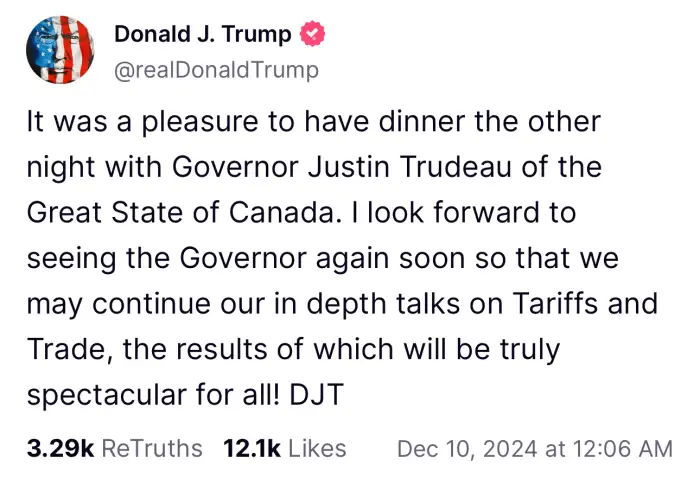
The comment, a throwback to Trump’s past suggestion that Canada might become the 51st U.S. state if they can’t handle his tariffs, is an insult to both Trudeau and Canada.

Trump recently posted an AI image of himself looking into Canada as if to annex it. Trump’s midnight post, claiming to look forward to future discussions on tariffs and trade with “Governor Trudeau,” further stoked tensions with a key ally and makes one question his diplomatic judgment.
Trump’s post undermines the United States’ relationship with Canada. Calling the Canadian leader a “Governor” belittles the sovereignty of a close neighbor and trading partner, and further feeds into the narrative of disrespect that Trump has often displayed toward foreign leaders.
The United States and Canada share deep economic, cultural, and geopolitical ties, and statements like this can jeopardize decades of cooperation. Trump is proving once again he will be an embarrassment to the United States.
-
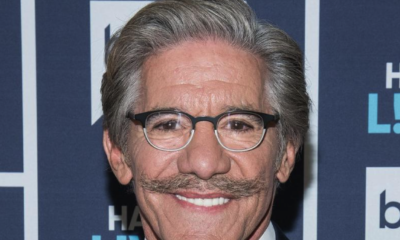
 News11 months ago
News11 months agoGeraldo Rivera Slaps Trump Supporters With A Reality Check After Biden’s Pardon
-
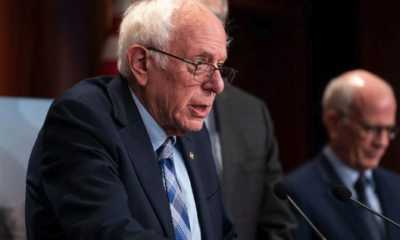
 News11 months ago
News11 months agoBernie Sanders Flips The Script And Praises Trump Picks
-

 Uncategorized11 months ago
Uncategorized11 months agoNaked RFK Jr. Makes Cameo On Wife Cheryl Hines’ Social Media
-

 News11 months ago
News11 months agoPhoto of person of interest with the mask down was the “money shot,” police commissioner says
-
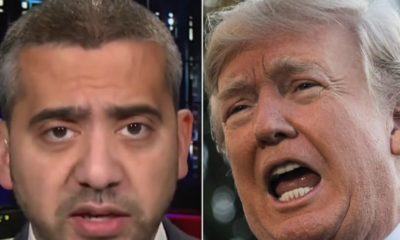
 News11 months ago
News11 months ago‘Banana Republic Stuff’: Mehdi Hasan Nails GOP Hypocrisy Over Trump’s Latest Move
-
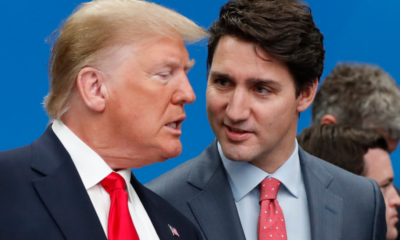
 News11 months ago
News11 months agoBREAKING: Canada just stunned Trump with brutal news after holding an “emergency meeting.” This WON’T end well for Trump…
-
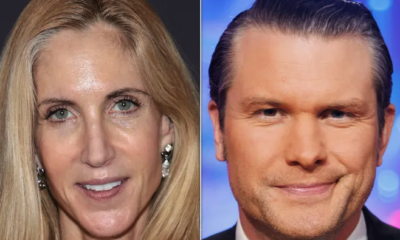
 News11 months ago
News11 months agoAnn Coulter Slams Controversial Trump Cabinet Nominee As ‘Sleazy’ Serial Adulterer
-
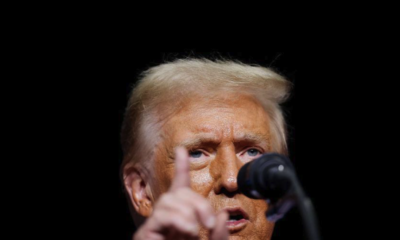
 News11 months ago
News11 months agoTrump Is Using “Unitary Executive” Theory in His Bid to Amass Supreme Power






